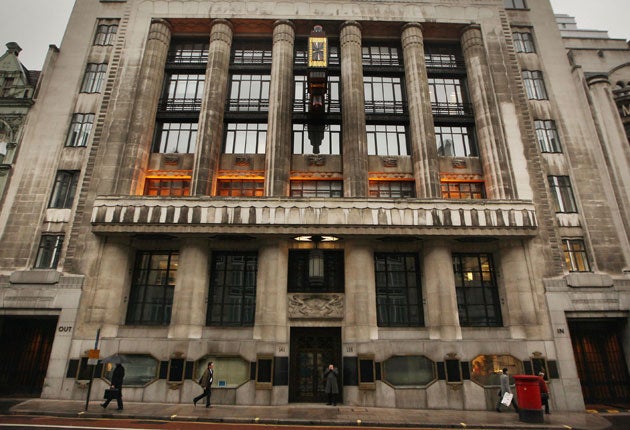Has Goldman Sachs signalled the work-from-home counter-revolution?
Boss David Solomon described the bank’s current set-up as ‘an aberration’ that the firm is planning to correct. It’s not alone in that, but is swimming against the tide wise? James Moore investigates


HSBC and Lloyds Banking Group have announced plans to slash their use of office space and other banks are looking at the same thing, so trust Goldman Sachs to yin when everyone else is yang-ing.
“I do think for a business like ours, which is an innovative, collaborative apprenticeship culture, this is not ideal for us. And it’s not a new normal. It’s an aberration that we’re going to correct as soon as possible,” said David Solomon, the chairman and chief executive of “the firm”, at a conference.
Reading that makes Goldman sound almost cuddly. Well, at least human. The operator of a modern, considerate and caring workplace where people are viewed not just as “human resources” but as human beings.
If you were young you might even see the advantage in going into a workplace like that as opposed to, say, trying to write a research report on the prospects for the car components industry as the guy in the flat upstairs whiles away his furloughed hours playing vintage drum and bass through a fancy set of speakers.
However, the picture painted by some of the reports emanating Goldman’s make its offices look less like Captain Picard’s humanistic Starship Enterprise and more like the corporate equivalent of the Hunger Games.
Take Why I Left Goldman Sachs, a memoir written by former Goldmanite Greg Smith, which is bitingly critical of the bank’s culture. Smith describes, among other things, interns having to carry around 18 inch stools to sit on, a sign of their lowly status. To get even one of those you apparently had to have sharp elbows: there weren’t enough put out in the morning.
Goldman hit back, claiming he was a disgruntled employee, among other things. But the claims resonated with those of us who had covered the bank and heard similar such tales from those in the know.
True, the memoir was published some time ago now but just a couple of years ago a very similar story was reported by eFinancial News, the City’s trade journal. It quoted a former intern on the bank’s trading floor who said the firm’s “human capital management” staff would put out insufficient numbers of small red plastic chairs for interns to carry about and set down next to traders they were shadowing. Is a small red plastic chair a sign of progress when compared with a foldable stood? I’m not sure.
Anyway, last year the bank paid out billions of dollars to regulators around the world over the 1MDB corruption scandal in Malaysia. And if you take a look through its disciplinary history you’ll see it’s far from the first such penalty.
You might wonder whether it’s a terribly good idea to be sequestering young and highly ambitious people in the sort of environment that allows those sort of things to go on when there’s an alternative that might give them the opportunity to think about what they’re doing.
But would putting in the requisite 16 hours a day from home for a day or two a week, as other banks are minded to allow, rather than spending your entire working life in the office change anything much? Probably not. And Goldman is hardly the only banking giant where bad things have happened.
Across the workplace more generally, home-working has been enthusiastically embraced by employees. Polls have shown workers have no great desire to go back to the office. Goldman is far from alone in struggling with that. Job site Indeed said 60 per cent of the remote roles it had put up since the start of the year were described as “temporarily remote”, up from just 37 per cent in the final quarter of last year. Is that just a matter of wording or is it the beginning of an attempt to launch a counter-revolution?
The name, and especially the dizzying rewards it offers, are enough of a lure that Goldman isn’t ever likely to be short of candidates, even if that means working those 16 hours in a soulless air conditioned shell. Not every employer is so lucky. “What, you’re going to want me in the office every day without exception? Thanks but no thanks, you aren’t offering anything like enough money for that when my current employer is more flexible.”
How best to tailor the post-Covid working environment promises to be one of the most pressing HR challenges of the next half decade. It seems there are quite a few employers who would like to go back to the old ways even if that means swimming against the tide.
Join our commenting forum
Join thought-provoking conversations, follow other Independent readers and see their replies
Comments

Bookmark popover
Removed from bookmarks